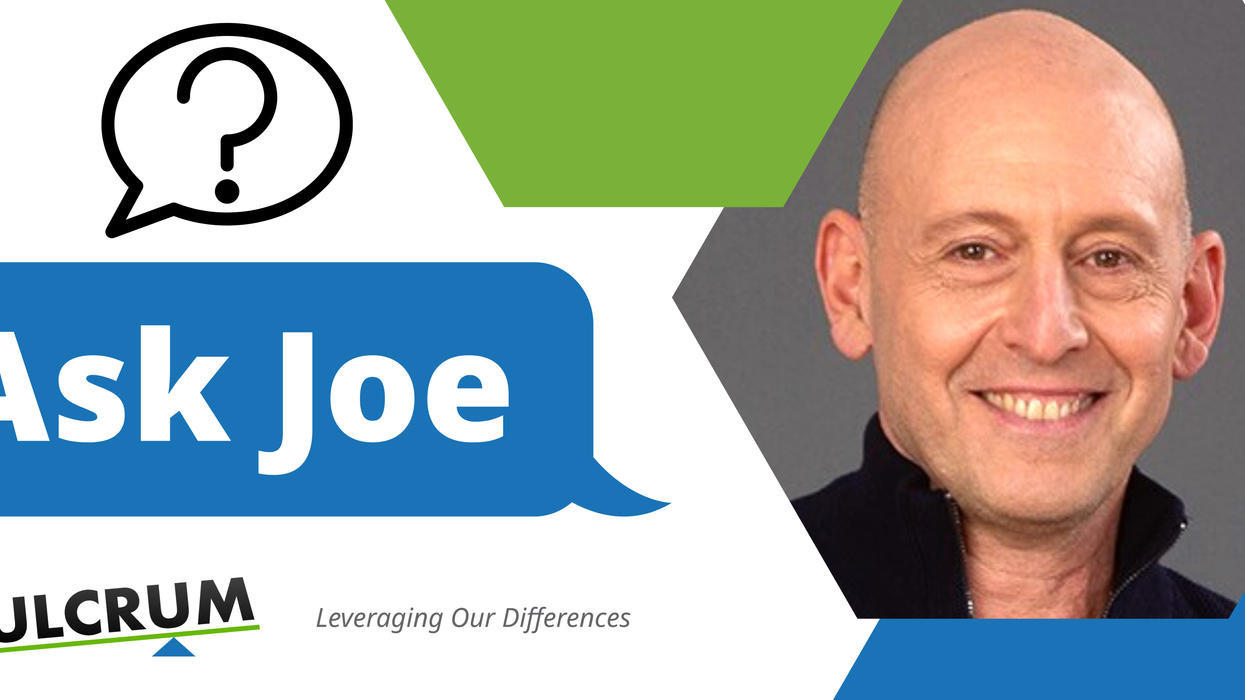Dear Joe,
I have a few friends and family members who are not going to vote. They say it’s pointless or the system is rigged. It makes me so angry. Can’t they see it’s their civic duty? Any suggestions on how to deal with them?
Over It
Hey, Over It.
I’m hearing this more and more from people. It’s certainly concerning that many are feeling disheartened, confused, powerless, cynical or just overwhelmed. I also find it hard to understand why someone would not make use of one of our most powerful tools for shaping our society, especially if they live in a place where they have easy access to voting.
There are many reasons why someone would choose not to vote, from personal and cultural trauma to laziness to making a political statement. But I would say that one underlying cause for this decision, whether consciously or unconsciously, is a deep, pervasive feeling amongst many of us that we are not being heard or understood.
When we are feeling powerless, or anxious, our nervous system will go into a fight-flight-freeze response. When in this state, we perceive anything that is unfamiliar or challenging as a threat. As a way to survive or manage some sense of safety, most of us will unconsciously revert to aggression (fight), or passivity (flight, freeze). For those of us who are not internally wired to outwardly use aggression as a way to express ourselves, we resort to more subtle tactics that can cause harm to self and others, as well as the breakdown of relationship and the sabotage of our best efforts.
If someone is feeling angry, or frustrated, or powerless, or a loss of trust in our current system, they may somehow believe that not taking action is a way to have an impact or make their voice heard. Unfortunately, they aren’t able to see that their inaction is not only not having a beneficial impact, but further disempowering their own sense of personal agency.
So, how can you approach your family and friends? First consider, you can’t make people change, but with curiosity and compassion you may be able to influence them in a way that may open them to new ideas or hope. Let’s start with the assumption that, somehow, they are not feeling heard or understood, but rather powerless. This is a great opportunity to invite them into a sincere, open conversation in which you give them the opportunity to express what they are feeling and then simply listen.
Perhaps if more people take the time to truly listen to these people, then their feeling of not being heard will dissipate. After you gather all their beliefs, ideas and perspectives, you may have some new information that could prompt a deeper discussion on issues that could inspire them in a new way. Perhaps you can even guide them in a way that helps them see how important their perspective is, and then offer them ways to get involved that would actually have an impact. If they start to feel they are understood, then they may develop a sense of belonging and purpose; they may feel like they are once again participating in the process and that their voice matters, which may activate them to reengage with the political process.
While this is an important strategy in the Fierce Civility approach, there are already many “get out the vote” initiatives around the country that implement this process when knocking on doors. Instead of bombarding people with their political views, they simply invite the person into a discussion and then listen. This has proven to successfully get more people to actually vote.
II understand the frustration, Over it, especially if you are working so hard to preserve and advocate for the integrity of our election system. It’s not your task to get people to have the same level of civic engagement that you have, but the more we can muster up patience, the sooner we can remind others of the enormous power in one single vote.
Joe Ask
Joe is dedicated to exploring the best ways to transform tensions and bridge divides. Our resident advice columnist and conflict resolution specialist, Joe Weston, is here to answer your questions in order to resolve tension, polarization, or conflict.
Learn more about Joe Weston and his work here. Make sure to c heck out Joe’s bestselling book Fierce Civility: Transforming our Global Culture from Polarization to Lasting Peace, published March 2023.
To Ask Joe, please submit questions to: AskJoe@Fulcrum.us.




















Trump & Hegseth gave Mark Kelly a huge 2028 gift